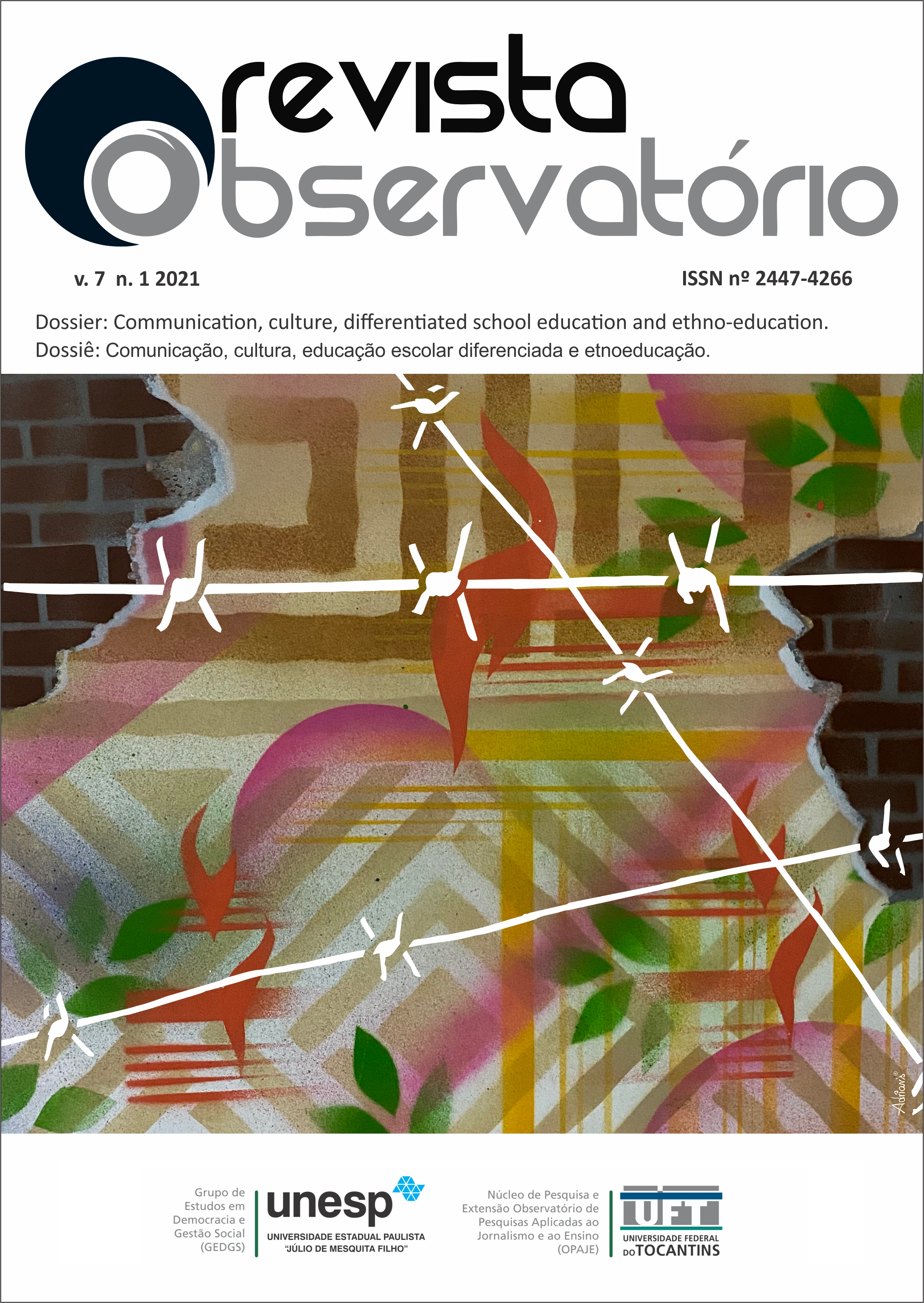POLÍTICA DE GESTIÓN DEL TRABAJO DEL ASISTENTE SOCIAL EN EDUCACIÓN
DOI:
https://doi.org/10.20873/uft.2447-4266.2021v7n1a11enPalabras clave:
Management, Planning, Education, Social Work, WorkResumen
El estudio tuvo como objetivo comprender la importancia del proceso de gestión del trabajo del trabajador social en la Política Educativa, más específicamente en el Curso de Coordinación del Trabajo Social. Se cuestionó si los principios teóricos y metodológicos de gestión se aplican en el sector público federal, donde el trabajo a realizar ya obedece a una agenda previamente planificada y orquestada por la esfera federal, ya que obedece a los planes y objetivos establecidos por los órganos directivos de Políticas públicas. Luego, se preguntó si sería posible construir el proceso teórico-práctico de gestión y cómo llevarlo a cabo en el campo de la práctica profesional, donde la sobrevaloración del trabajo burocrático interfiere directamente con la acción profesional, un proceso que contribuye a construcción de una práctica profesional vacía y no crítica. También en esta guía de preguntas, también se preguntó cuáles son los principios teóricos y prácticos de gestión que el trabajador social podría apropiarse como herramienta de trabajo en su desempeño en el sector público, donde el profesional se topa habitualmente con límites institucionales y relaciones de poder establecidas. en el aparato del estado. El estudio documental y bibliográfico se caracterizó por su carácter exploratorio y enfoque cualitativo. Se consideró que el proceso de valoración del trabajo burocrático ha estado alentando gradualmente la burocratización de la práctica y el vacío profesional, un hecho que condiciona la práctica profesional a las tareas burocráticas y rutinarias. La gestión del trabajo y la capacidad de planificar y organizar la acción profesional con un propósito determinado se convierten en instrumentos de gran importancia en la formulación de propuestas para enfrentar los desafíos planteados a los profesionales del Trabajo Social.
PALABRAS-CLAVES: Gestión; Planificación; Educación; Trabajo Social; Trabajo.
Descargas
Citas
BAPTISTA, Myrian Veras. (1978). Planejamento: introdução à metodologia do planejamento social. 2ª edição. São Paulo, Cortez &Moraes ltda.
BAPTISTA, Myrian Veras. (2015). Planejamento social: intencionalidade e instrumentação. São Paulo, Veras.
DEMO, Pedro. (1988). Participação é conquista. São Paulo, Cortez.
FILHO, Rodrigo de Souza. (2013). Gestão Pública & Democracia: A Burocracia em Questão. 2.ed. Rio de Janeiro, Lumen Juris.
IAMAMOTO, Marilda Vilela. (2001). O Serviço social na Contemporaneidade: trabalho e formação profissional. 5. Ed. São Paulo, Cortez.
NOGUEIRA. A.M. 2007. Teoria da Administração para o século XXI. São Paulo, Ática Universidade.
ROSA. J.S. da. (2008). A matéria Administração e Planejamento na Matriz Curricular do curso de Serviço Social. Dissertação Mestrado em Serviço Social – Universidade Federal de Santa Catarina. Florianópolis.
PAIVA, Beatriz Augusto. (1999). Reflexões sobre pesquisa e processos de formulação e gestão.In. Capacitação em Serviço Social e Política Social: Módulo 4: O trabalho do assistente social e as Políticas Sociais. Brasília, CEAD.
UNIPAMPA. Universidade Federal do Pampa. Edital da Pró-Reitoria de Graduação (PROGRAD). (2019b). Edital nº 62/2019. Bagé.
UNIPAMPA. (2016). Universidade Federal do Pampa. Projeto Pedagógico do Curso de Serviço Social – Bacharelado. São Borja.
UNIPAMPA. (2019) Universidade Federal do Pampa. Conselho Universitário da Universidade Federal do Pampa. Resolução nº 253, de 12 de setembro de 2019.
Descargas
Publicado
Cómo citar
Número
Sección
Licencia
[PT] Autores que publicam nesta revista concordam com os seguintes termos:
1. Autores mantém os direitos autorais e concedem à revista, sem pagamento, o direito de primeira publicação, com o trabalho simultaneamente licenciado sob a Creative Commons Attribution License (CC BY-NC 4.0), permitindo o compartilhamento do trabalho com reconhecimento da autoria do trabalho e publicação inicial nesta revista.
Leia todos os termos dos direitos autorais aqui.

